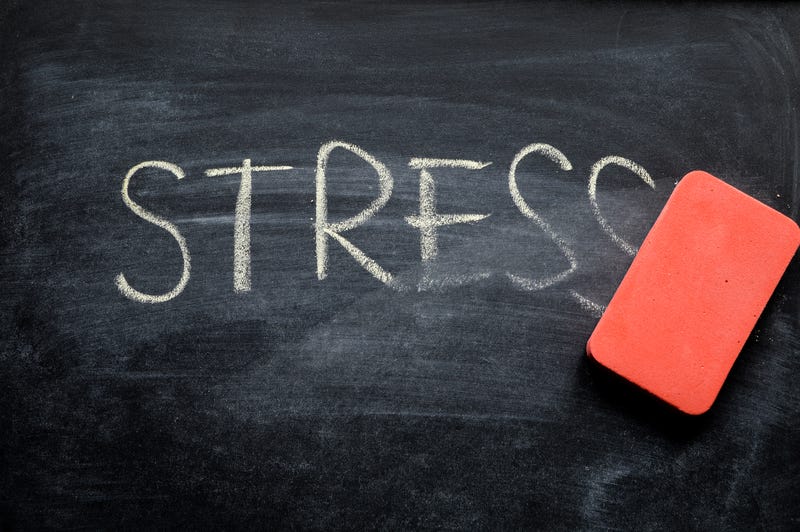
PHILADELPHIA (KYW Newsradio) — In his weekly conversation with KYW's Michelle Durham, KYW Medical Editor Dr. Brian McDonough explains to a listener that stress can lead to heart disease and cancer. He notes that chronic inflammation, often caused by prolonged stress, can harm the body and emphasizes stress reduction through exercise and other methods to prevent long-term health issues.
Ask Dr. Brian
If you have a question for Dr. Brian, you can always email him at AskDrBrian@KYWnewsradio.com
An emphasis on stress reduction
Michelle Durham: Dr. Brian is never really off duty — not even when he's shopping. And one of our listeners came up to you in the grocery store, Brian, and they asked a question. What was the question and what was your response?
Dr. Brian McDonough: The question was actually a good one: "In one of your reports, I heard you say that stress can lead to heart disease and cancer. It doesn't make sense. I mean, I can see stress giving me a headache. I can see stress causing lots of blood pressure going up. But cancer? What's going on?"
And it's an easy one, once you understand the concept — but it's a tough concept. I said: You know how there's inflammation? When you know something irritates you, on your skin or something, you might get some redness, and we call this inflammation.
But when you get inflammation in the body, it helps fight things, but as a protective mechanism, it can do negative things, too. And when you have inflammation and a lot of inflammation, it can lead to heart disease, it can lead to cancer, it can lead to all sorts of problems in your body.
I use the example of COVID-19. When COVID came, you notice how a lot of people had all these wild and vague symptoms. What that virus did was increase inflammation, and it increased the ability of the body to attack itself.
And it was a nasty virus in the sense that it went to the weak points. So if somebody had bad joints, their joints started hurting. If they had bad lungs, they had issues with the respiratory system. Things we didn't even know we had were brought out by the inflammation caused by this virus.
Well, in the long term, stress raises cortisol levels. Cortisol levels cause a cascade in the body that increases inflammation, and that's why it happens. Takes a long time, but the good news about it, I said, is do what you can to reduce stress, and that will help you.
You know, I think we underestimate the toll that stress takes on us in our daily lives. If you think about all that cortisol and what it does to your heart muscle and what it does to your brain and also it can be responsible for weight gain because you go into fight or flight mode, it's really something to be taken seriously.
You're so right, Michelle, if you think about why we have fight or flight, I mean, it goes way back to when a saber toothed Tiger could be attacking us. And, you know, run, run. Or even when your body's attacked, it would reduce the amount of bleeding you have. Everything was built to survive in the wild, and now we don't have the wild. We have stress. And we build all this energy and this stress and cortisol, and there's nowhere to release it.
That's why I tell people, one of the best ways to reduce stress is actually to get out and exercise. If you have an exercise program, people find it helps burn things out.
My worry with COVID is the worst of it is going to be 10, 20, 30 years from now, and we'll probably never link it to COVID. But a lot of the stress and anxiety that people are facing right now still exists from coming through that — the working at home, the stress at work, the financial issues, losing family members. All those things led to stress, and that stress can take a toll on us long term.
So what I'm trying to tell people is start working on the stress now. Do what you can to reduce it, because it doesn't have to happen. It only happens if you don't try to reduce the stress and anxiety.
